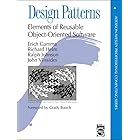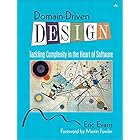| Digital List Price: | $39.99 |
| Kindle Price: | $29.99 Save $10.00 (25%) |
| Sold by: | Amazon.com Services LLC |
Your Memberships & Subscriptions

Download the free Kindle app and start reading Kindle books instantly on your smartphone, tablet, or computer - no Kindle device required.
Read instantly on your browser with Kindle for Web.
Using your mobile phone camera - scan the code below and download the Kindle app.





Follow the authors
OK
Adaptive Code: Agile coding with design patterns and SOLID principles (Developer Best Practices) 2nd Edition, Kindle Edition
Write code that can adapt to changes.
By applying this book’s principles, you can create code that accommodates new requirements and unforeseen scenarios without significant rewrites. Gary McLean Hall describes Agile best practices, principles, and patterns for designing and writing code that can evolve more quickly and easily, with fewer errors, because it doesn’t impede change.
Now revised, updated, and expanded, Adaptive Code, Second Edition adds indispensable practical insights on Kanban, dependency inversion, and creating reusable abstractions. Drawing on over a decade of Agile consulting and development experience, McLean Hall has updated his best-seller with deeper coverage of unit testing, refactoring, pure dependency injection, and more.
Master powerful new ways to:
• Write code that enables and complements Scrum, Kanban, or any other Agile framework
• Develop code that can survive major changes in requirements
• Plan for adaptability by using dependencies, layering, interfaces, and design patterns
• Perform unit testing and refactoring in tandem, gaining more value from both
• Use the “golden master” technique to make legacy code adaptive
• Build SOLID code with single-responsibility, open/closed, and Liskov substitution principles
• Create smaller interfaces to support more-diverse client and architectural needs
• Leverage dependency injection best practices to improve code adaptability
• Apply dependency inversion with the Stairway pattern, and avoid related anti-patterns
About You
This book is for programmers of all skill levels seeking more-practical insight into design patterns, SOLID principles, unit testing, refactoring, and related topics. Most readers will have programmed in C#, Java, C++, or similar object-oriented languages, and will be familiar with core procedural programming techniques.
-
ISBN-13978-1509302581
-
Edition2nd
-
PublisherMicrosoft Press
-
Publication dateApril 18, 2017
-
LanguageEnglish
-
File size52772 KB
Customers who bought this item also bought
Editorial Reviews
About the Author
Gary McLean Hall is a software developer, architect, and consultant with more than a decade of experience optimizing processes and practices in diverse Agile environments. He recently founded Igirisu to provide developer training for TDD, continuous integration, refactoring, design patterns, SOLID principles, and Git source control; cultural coaching towards Agile; and related services. His book, Adaptive Code via C# (Microsoft Press, 2014), has been translated into German, Japanese, and Korean, and won the Society for Technical Communications
Distinguished Award in 2015.
Product details
- ASIN : B071YC5ML9
- Publisher : Microsoft Press; 2nd edition (April 18, 2017)
- Publication date : April 18, 2017
- Language : English
- File size : 52772 KB
- Simultaneous device usage : Up to 5 simultaneous devices, per publisher limits
- Text-to-Speech : Enabled
- Screen Reader : Supported
- Enhanced typesetting : Enabled
- X-Ray : Not Enabled
- Word Wise : Not Enabled
- Sticky notes : On Kindle Scribe
- Print length : 450 pages
- Best Sellers Rank: #544,802 in Kindle Store (See Top 100 in Kindle Store)
- Customer Reviews:
About the authors
-

Discover more of the author’s books, see similar authors, read author blogs and more
-

Discover more of the author’s books, see similar authors, read author blogs and more
Customer reviews
Customer Reviews, including Product Star Ratings help customers to learn more about the product and decide whether it is the right product for them.
To calculate the overall star rating and percentage breakdown by star, we don’t use a simple average. Instead, our system considers things like how recent a review is and if the reviewer bought the item on Amazon. It also analyzed reviews to verify trustworthiness.
Learn more how customers reviews work on Amazon-
Top reviews
Top reviews from the United States
There was a problem filtering reviews right now. Please try again later.
There is so much good information in this book: there is no filler - it's all quality, need-to-know material. This book is well worth the price ... and then some.
This book uses C# in its code examples, but the majority of the book applies to Agile development in general, not being specifically tied to C#, or even to Microsoft. Think of it like Robert Martin's book Clean Code, which has Java code examples, but whose material applies to far more than just Java developers.
* The process chapters in the beginning seem out of place. The book is primarily about design and code and that's what I expected. So I just skipped over them.
* The SRP chapter applies an incorrect understanding of the SRP. I actually mention this in a blog post (http://www.softwareonthebrain.com/2022/01/the-misunderstood-single-responsibility.htmhttp://www.softwareonthebrain.com/2022/01/the-misunderstood-single-responsibility.html?m=1), not because it's specific to this book but because almost everything that I read about the SRP misunderstands it. Uncle Bob seems to agree because he tweeted a link to the post.
* SOLID is useful and well-known but it does not capture the richness of everything the author has to say. There are a lot of good points made in the SOLID chapters that are forced into the SOLID framework.
If I could I speak to the author, I'd suggest:
* Remove the agile chapters. Write another book about that if you like. Leave the word Agile out of the title. Seems contrived so a keyword search will work.
* Drop SOLID from the title. Don't force-fit everything into SOLID as it does not capture everything. Structure things in a more natural way.
* Consider that there is anti-Microsoft bias in the OSS community. So half the market won't even look at it based on the fact that it's an MS book. That's silly but true. Under a different publisher with a mix of C# and, say, Java examples it'd likely be read by a broader audience.
The book is rich with insight. Despite what I say above it is definitely worth picking up. As an illustration of how much I liked it, when I saw the advertisement for the 3rd edition I was prepared to order it right after reading the 2nd edition. But it's not ready yet. :-(
I've encountered a lot of the pain this book hopes to remove. I devoured this book. I read 10 chapters of it while on "vacation" and don't regret a minute spent reading it. I'm excited about taking the concepts one bite at a time and trying to integrate them into my real work. Great book.
A reviewer said that it just provided an overview of the concepts... While it may be true, i feel like the only way to master these skills is to apply them in real world projects. You simply won't get good at software development by just reading books.
The best way to learn from it is to read the whole thing the first time, and then get back in the book after you encounter a problem on your project.
Top reviews from other countries
Les exemples sont clairs, les chapitres bien structurés. Je recommande ce livre à toutes les personnes qui ont déjà programmé dans un autre langage que le C# et qui veulent se lancer dedans, tout en ayant un livre abordant les bonnes pratiques de programmation
It goes into more detail when it talks about SOLID principles. The examples are simple but I don't think that's a bad thing. This is the sort of book you want to read, do some development and then come back and read again to see if there is something more you could learn.










